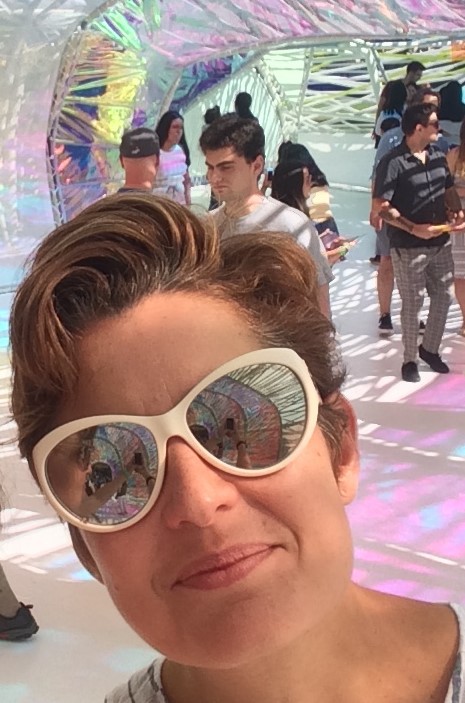When I was in high school, I wrote out Emily Dickinson’s “[I started Early—Took my Dog—]” in outsize Goth-y script and taped it to my wall—understanding little of it. I had come across it while doing the dreaded twenty-page research paper for US History, the hallmark assignment of many a college prep school. My teacher was kind. He allowed me to take a patently literary topic and wrench it into a historical one, which is how I found myself leafing through Dickinson’s Collected looking for vaguely feminist poems. This one must have stood out in its forceful expression of utter female power. Near the middle of the poem, the speaker rejects the help of the “Hempen hands”, who want to save her from drowning. The poem comes to a near stand-still as she declares “But no Man Moved Me”—five stresses that seem to fix her in the sand as she allows “the Tide” to rise up past her “Shoe,” “Apron,” “Belt” and “ Bodice,” until “He” threatens to “eat [her] up” entirely. What a choice—to reject a mere man, or all of humanity (depending on how you want to read it) in favor of the Sea, even if choosing the Sea means risking death. It’s a danger that she handles playfully, even coquettishly. The Sea, after all, is about “to eat her up,” not drown her.
After she embarks on the journey with her dog, a sign of ordinary domestic life, mermaids come out to look at her, another playful move that marks a shifts from the quotidian to an unmistakably imagined timeless world. Poems for me then were, in and of themselves, ways to warp and shape time, and thereby elude the newly felt pressures of mortality. A poem that began with a pronounced threshold to a timeless realm was all the more welcome. The introduction of the mermaids also affirmed an archetype of the childhood imagination. As an adolescent, I was in fresh mourning for its loss and desperate to hold on to it even if that meant embracing common fantastical figures like mermaids.
The images of the Sea during the chase—the sea’s “Silver Heel Upon [her] Ankle” and finally, her shoes overflowing with “Pearl”—were the parts of the poem that really entranced me. In her far-reaching personification, Dickinson captures the beauty of the surf and the delight of the speaker as she is overcome by it. The Sea follows her until they meet the Solid Town where He can’t follow her any more. She is done with her dissolving and must reconstitute herself and resume her real life. Walking the dog? Where did the dog go? As a poet friend pointed out, the dog is the weirdest thing about this poem.
Less weird, at least to a couple of poets, was the fact that she seems to be having sex with the ocean. This could not have totally escaped me as a teenager consumed by desire, sexual or otherwise. My body and my surroundings, including all the people around me, couldn’t seem to hold it, and so the idea that the ocean, a much larger body than any human body, might be able to didn’t seem so far-fetched. Perhaps there was a part of me, too, that understood that her encounter with the Sea was a way of describing an ecstatic, particularly pearly encounter with the Muse. No man moved her, in other words, but the act of poetry writing did. It’s wonderful to think of the act of writing poetry as nature—not just as a means of describing it.




